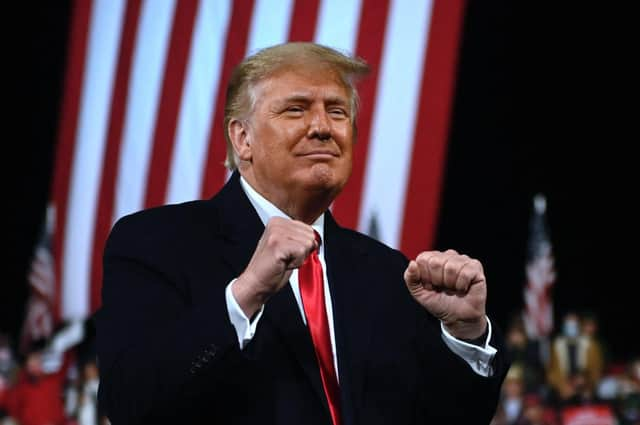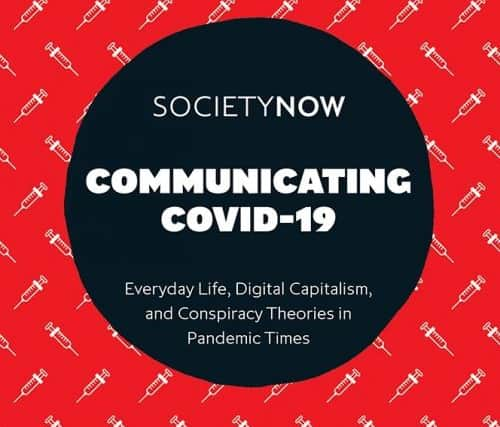Book review: Communicating Covid-19, by Christian Fuchs


Christian Fuchs is a critical theorist and a professor of media and communications studies at Westminster University, where he is the director of the Communication and Media Research Institute. He has written widely on communication and Covid-19, and a previous journal article forms the basis for part of this book.
Communicating Covid-19: Everyday Life, Digital Capitalism, and Conspiracy Theories in Pandemic Times is an academic study of communication around the Covid-19 pandemic, particularly relating to conspiracy theories and disinformation. The book centres on a number of key topics including anti-vaxxers, Bill Gates, the World Health Organisation and Donald Trump.
Advertisement
Hide AdThe book begins with a thorough introduction and some background information about the Covid-19 pandemic which contemporary readers may find unnecessary. Fuchs is not an expert in infectious diseases, and his sweeping generalisations and parsing of scientific literature do not add a huge amount to work already published by experts in the field.


Fuchs attributes the Covid-19 pandemic to capitalism, arguing that capitalist production has resulted in a loss of biodiversity and animal habitats which have brought wild animals closer to humans. At the same time, a desire in some cultures to eat wild animals has created a capitalist food industry which sells wild animals as food, and increases the risk of virus transmission from animals to humans.
Fuchs also argues that Covid-19’s impacts have been felt most brutally by the working class, and examines the impact of the pandemic on low-paid factory workers, in contrast to the impact on the millionaire owners of the companies they worked for. He also considers the impact on education, as well as the experience of workers with children, who were forced to take on the dual role of worker and educator during Covid-19 lockdowns.
The most illuminating chapters relate to communication around Covid-19. Fuchs draws on several sources to define conspiracy theories, and draw out key tropes used by those propagating them. He then delves deep into his own research around two case studies: Bill Gates and Donald Trump.
The world of Covid-19-related conspiracy theories is a murky one, and Fuchs is an excellent guide. He uses four sources: a Tweet, an online documentary film, an online interview and a series of online interviews to examine in detail the kind of conspiracy theories which abound about Bill Gates and the relationship between the Bill and Melinda Gates Foundation, the World Health Organisation and Covid-19 vaccines. The book is mostly focussed on material originating in the United States, but it also draws on material from Germany translated into English.
From a secret plot to manufacture Covid-19 in a lab, to vaccine microchips containing a person’s health records, to the incredibly ugly anti-Semitism of QAnon ideas around abducting children for their blood, Fuchs takes the reader through a litany of conspiracy theories which have bred on social media during the pandemic, many of which lean heavily on foundations laid long ago which have nothing to do with the pandemic. These are each analysed in terms of the tropes of conspiracy theories previously identified.
Advertisement
Hide AdCommunicating Covid-19 examines not only the conspiracy theories being propagated by famous figures – including well-known musicians, politicians and journalists – but also the responses to these theories by others commenting on social media, which offers some very interesting insights.
Fuchs also dedicates a chapter to Donald Trump. A rich source of material, Trump is “an active conspiracy theory and fake news factory”, according to Fuchs, and several of his tweets are presented as evidence. Many of these display key characteristics of conspiracy theories, from blaming Covid-19 on China, to underplaying the severity of the disease, to stoking rumours of voter fraud in the November 2020 elections.
Advertisement
Hide AdCommunicating Covid-19 is an interesting piece of research in the hugely important field of digital communication and the relationship between conspiracy theories and public health. While primarily aimed at an academic audience, committed lay readers may find fascinating and alarming snippets.
Communicating Covid-19: Everyday Life, Digital Capitalism and Conspiracy Theories in Pandemic Times, by Christian Fuchs, Emerald Books, £16.99
A message from the Editor:
Thank you for reading this article. We're more reliant on your support than ever as the shift in consumer habits brought about by coronavirus impacts our advertisers.
If you haven't already, please consider supporting our trusted, fact-checked journalism by taking out a digital subscription at https://www.scotsman.com/subscriptions